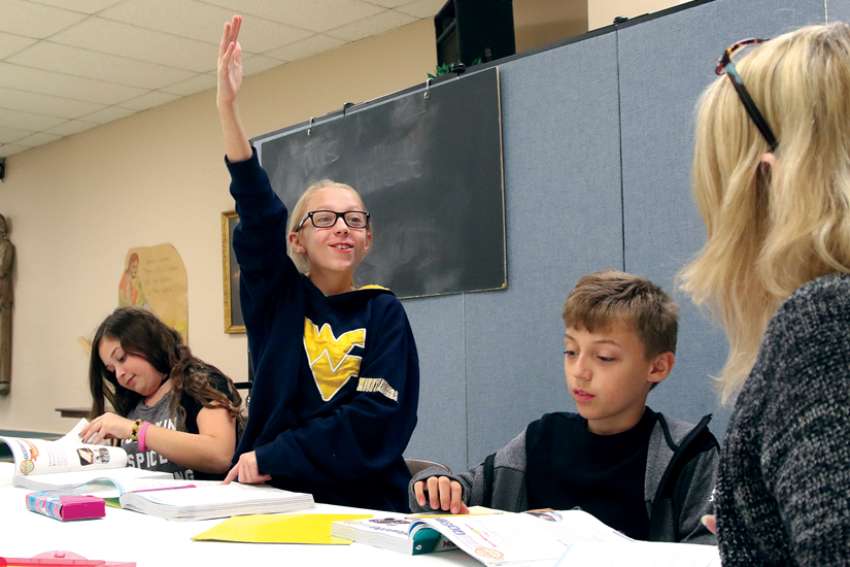VANCOUVER -- With schools slowly getting back to normal following the global pandemic, the Catholic Independent Schools of Vancouver Archdiocese is trying to help Catholic school principals address their greatest concerns.
A CISVA survey of all Catholic school principals in British Columbia has found student mental health and well-being were the top concerns for administrators, who described a rise in student anger, fear of returning to school, as well as a decrease in student executive function. Above all “anxiety” was the word used most by principals to describe the outlook of their students.
In August, Lifeworks, a human resources and technology company focused on developing positive well-being solutions, revealed in its monthly Mental Health Index that 56 per cent of Canadians noticed their children were still being harmed by the COVID-19 pandemic. The Lifeworks report said 27 per cent of parents noticed their child being fretful about the future, while 24 per cent noticed declining social skills and 23 per cent detected adverse academic development.
Reading and math tests scores are also down.
These results are in line with wider trends in the U.S. and across Canada, CISVA associate superintendent Sandra Marshall told The B.C. Catholic.
The realities of the past two years have been recognized by the B.C. Ministry of Education, which has made funding available to help schools deal with the rise in mental health issues for students.
CISVA used the grant money to hire speakers and buy resources to help teachers with additional professional development using Open Parachute, a collection of material focused on social emotional learning in a faith-based context. Open Parachute creator Dr. Hayley Watson gave monthly talks for school teams to help them implement the program.
This year CISVA has gone to Neufeld Institute Foundation faculty member Dr. Deborah MacNamara, who gave talks to CISVA principals Sept. 20 on “Cultivating Relationally Focused and Trauma Sensitive Schools.”
In a document to principals CISVA said the importance of emotional health and well-being is “one of the most overlooked aspects of the learning equation.”
Schools are struggling to pivot and address the challenges posed by increased student use of technology that makes relationship building “less automatic.” In response, CISVA is investing in resources to help shift school culture toward a focus on relationships as the key to educator and student emotional health and well-being.
Relationships are at the core of student health, said CISVA, and promote the “development of social responsibility, help to harness attention and achieve learning outcomes.” They are also instrumental in helping students grow.
Because our faith affirms that we are fundamentally relational beings, the initiatives are meant to emphasize the Catholic mission of our schools, said Marshall.
“We know as Catholics that we are made to be in community,” she said. “We are made to be in communion with other people.”
That reality is one of the reasons COVID was so hard on students. Marshall said that in the past fear of isolation would cause trauma, but COVID made us afraid of being together. The isolation caused by COVID struck at the root of who we are as people.
To help facilitate the schools’ mission to promote and cultivate relationships, principals will be able to attend a monthly talk with MacNamara, who is excited about a resource being developed by the Dominican Sisters of St. Cecilia Congregation in Nashville to help schools with social-emotional learning. The sisters have collaborated with Aquinas College in California and the Catholic University of America to produce Insight: The first Catholic Social Emotional Learning (SEL) Program for K-12 Catholic School Educators.
The resource is rooted in the Catholic intellectual tradition and is designed to help students with the formation of self-knowledge, interpersonal relationships and virtues.
Implementation of the resource is still in the planning stage, but Marshall is excited for a social emotional learning program rooted in Christ.


